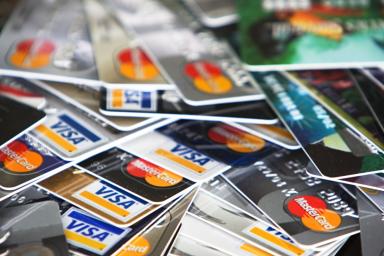What is viral marketing?
Marketing a startup can seem like an impossible challenge. Limited advertising budgets can make it difficult to attract those vital early customers.
That means startups often have to think creatively about how to get the best bang for their marketing buck.
What is viral marketing?
Viral marketing is any piece of marketing material that engages your target market on a large scale and is shared widely.
Successful viral marketing doesn't need to be expensive, but it does need to resonate with your audience and be easily shareable.
Marketing 'goes viral' when it takes on a life of its own, with people sharing it with their friends who then share it with others, commenting on it and it even being featured in mainstream media.
It's the digital equivalent of a winter cold, spreading quickly across networks and reaching millions of people.
Most viral marketing is content-based. Videos, images, photos, infographics and memes all have the potential to go viral.
All are able to be rapidly shared across social media networks, can be easily commented on and - with easy access to editing software - are often recreated, remixed and reused in different ways.
Content needs to be unique and is often humorous and topical. It can also be designed to shock or create an emotional reaction, with viewers quick to express their opinion about it.
Viral marketing is very hard to achieve. Investing time and effort into creating marketing material with the aim of getting it to going viral can help.
However, it also involves a deep understanding of the target market, heaps of humour that the audience will love and lots of luck.
Often viral marketing is the case of right content in the right place at the right time.
What are the benefits of viral marketing?
Viral marketing can transform the fortunes of a startup, catapulting it into the public eye.
Established brands can use viral marketing to challenge existing perceptions of a brand, launch a new product or simply as a reaction to more traditional forms of marketing.
Audience reach
Truly viral marketing campaigns reach millions of potential customers on a global scale.
Reach can be achieved quickly - sometimes over a few days - and the best campaigns can also remain in the public consciousness for months afterward.
Cost effective
Many viral marketing campaigns are created on a shoestring budget.
Low-quality video and animation, amateurish infographics and memes are no barrier to success.
As content is shared, the cost of advertising is sidestepped, too.
Viral marketing can be cheap to create and free to deliver.
Brand building
Viral marketing can be a great way to get people talking about your brand.
It can prove a successful departure from more established advertising channels, helping your brand stand out against less fleet-footed competitors.
New audiences
successful viral marketing can spread across channels, jumping social media platforms such as YouTube and Facebook.
This can open up new audiences being exposed to your brand.
What are the disadvantages of viral marketing?
Viral marketing is a double-edged sword.
Unlike more traditional forms of marketing, content is quickly taken out of your hands and placed into the realm of your target market.
That means your campaign can be altered, remixed, mocked and criticised on a massive scale.
There's no guarantee that a viral campaign will actually go viral.
Historically viral marketing has often been accidental, but increasingly marketing agencies are proactively planning viral marketing campaigns - though these do not always work.
When viral marketing goes wrong
Viral marketing can easily go wrong.
US outdoor clothing brand The North Face was criticised in May 2019 for a viral marketing campaign that backfired.
Its marketing agency replaced images on the online encyclopaedia Wikipedia with its own images, featuring branded The North Face products.
The aim was to secure greater visibility in Google search results - Wikipedia images are often shown as images alongside search results - but the move sparked outrage, prompting The North Face to apologise and halt the campaign.
Viral marketing examples
When viral marketing works, it can prove an incredible success.
The best viral marketing examples have reached millions of people and even made news headlines around the world.
ALS ice bucket challenge
The ALS ice bucket challenge raised over $115m in an eight-week period in 2014, with 1.2m videos shared on Facebook and 2.2m times on X.
It relied on self-shot YouTube videos of people, including celebrities and public figures, pouring a bucket of ice water over themselves and filming it in support of funding research into the degenerative disease amyotrophic lateral sclerosis.
#nomakeupselfie
Cancer Research UK noticed that the Twitter #hashtag #nomakeupselfie was trending, and gave it a boost with a request for donations.
The campaign saw thousands of women including celebrities post selfies of their faces without make-up over a few weeks in 2014, prompting over £8m in donations.
Dumb Ways To Die
Metro Trains in Australia decided to forego the traditional public service announcement designed to stop people being run over by a train.
Working with advertising agency McCANN, it launched the viral video Dumb Ways To Die.
It amassed over 150m views and was shared nearly 5m times and is the third most-shared ad of all time.
Over 127m people have said they would be safer around trains thanks to its quirky animation and humorous song.
Will It Blend
Blendtec hit on a winning formula to make its range of kitchen blenders appeal to a wider, younger audience.
It built the dedicated website Will It Blend and posted regular videos of its blenders tackling the newest gadgets or unusual objects - from iPhones to a Ford Fiesta car.
It has had over 287m views on YouTube.
Alexa loses her voice
Amazon used viral marketing to boost its Alexa intelligent assistant technology.
Run during the Super Bowl, it was viewed 43m times, generated 1.5bn media impressions and saw sales increase 300%.
The ad featured different celebrities standing in for Alexa when the virtual assistant loses her voice.
How to create a viral marketing campaign
Viral marketing campaigns don't need huge budgets.
However, they do need a deep understanding of your audience and the ability to create original, often quirky content that generates a response.
Target audience
Great viral marketing campaigns really understand their audience.
Look at the types of content your audience shares, and on what platform.
Cast your net wider and look at the comedy they find funny, the values they hold or the issues they react to.
Understanding their humour, interests and the issues they care about can be the foundation of any viral marketing activity.
Creativity
Run-of-the-mill creative content won't cut it as a viral campaign.
Content needs to be unique, interesting, compelling and innovative - something that hasn't been seen before.
Many campaigns are clever in their use of images, video, words and the message it is conveying.
Emotional
Most viral marketing campaigns don't pull any punches.
Plan a creative that will create an emotional response rather than a shrug of the shoulders.
It's a tricky path to walk.
Negative responses can also be shared, but aim for positive emotions - positive surprise, humour, delight or a payoff for working out the marketing message are good bets.
Shareable
Social media platforms are pivotal in the success of viral marketing campaigns.
Create video, images and infographics that are highly shareable, creating tailored versions suitable to each platform.
It can be worth investing in an initial round of paid advertising, such as Facebook Ads, to seed video and be a catalyst for it being shared.
When choosing a social media platform, look at what content performs best on social media for audience engagement, trending topics and demographics.
Planned release
Plan carefully when it's best to run the campaign.
Marketing can be aligned to events such as Christmas, sporting or political events.
Aim to capitalise on media coverage of an event to create a variant that can piggyback off coverage.
For example, Lidl's amusing response on X was timed perfectly to the annual reveal of the John Lewis Christmas ad and went viral with thousands of shares.
Take action
Have a clear, simple message and action for the audience.
Dumb Ways To Die clearly wanted viewers to take care around railway lines and trains.
Encourage people to post and share they have taken the action - decided to be safer, donated to a good cause and so on - to help spread the campaign message.
Be surprising
Challenging established perceptions can be dramatic. Consider producing a campaign that is unexpected and something that wouldn't normally be associated with your brand.
Engage and comment
Viral marketing isn't a fire-and-forget approach. As interest builds, use your own social media channels to comment on responses, encourage sharing and take part in the conversation.
Learn with Start Up Loans and boost your marketing skills
Want to market your start-up business? Check our free online courses in partnership with the Open University on effective marketing techniques.
Our free Learn with Start Up Loans courses include:
- Marketing in the 21st Century
- First steps in innovation and entrepreneurship
- Entrepreneurial impressions – reflection
Plus free courses on climate and sustainability, teamwork, entrepreneurship, mental health and wellbeing.
Disclaimer: The Start -Up Loans Company makes reasonable efforts to keep the content of this article up to date, but we do not guarantee or warrant (implied or otherwise) that it is current, accurate or complete. This article is intended for general information purposes only and does not constitute advice of any kind, including legal, financial, tax or other professional advice. You should always seek professional or specialist advice or support before doing anything on the basis of the content of this article.
The Start-Up Loans Company is not liable for any loss or damage (foreseeable or not) that may come from relying on this article, whether as a result of our negligence, breach of contract or otherwise. “Loss” includes (but is not limited to) any direct, indirect or consequential loss, loss of income, revenue, benefits, profits, opportunity, anticipated savings, or data. We do not exclude liability for any liability which cannot be excluded or limited under English law. Reference to any person, organisation, business, or event does not constitute an endorsement or recommendation from The Start-Up Loans Company, its parent company British Business Bank plc, or the UK Government.
Your previously read articles
Sign up for our newsletter
Just add your details to receive updates and news from Start Up Loans
Sign up to our newsletter


